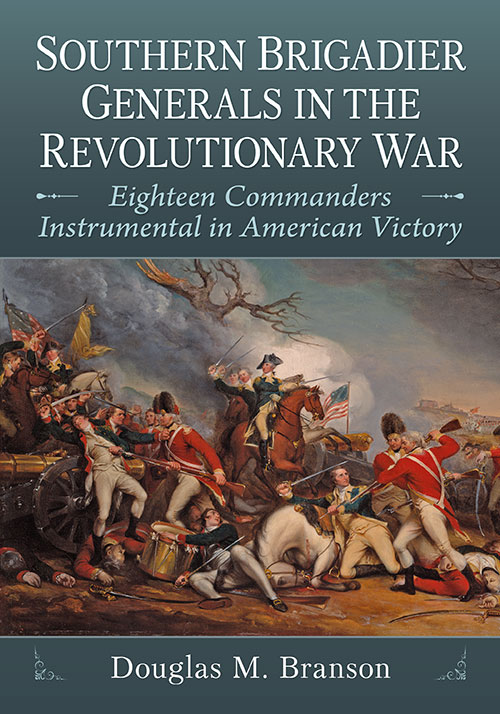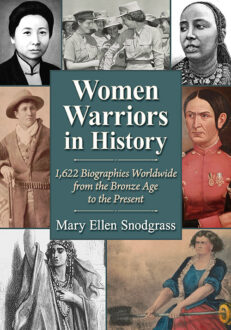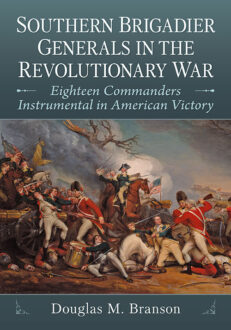Southern Brigadier Generals in the Revolutionary War
Eighteen Commanders Instrumental in American Victory
$39.95
In stock
About the Book
The stories of Southern brigadier generals during the Revolutionary War remain largely forgotten or untold, but their experiences were unique. During the war, 13 of the 58 brigadier generals (the lowest-ranking generals) who served under George Washington died because of combat wounds or under British captivity. Seven of those 13 hailed from the southernmost and (excepting Virginia) less populated colonies. Proportionally, they were more likely to become casualties or prisoners than were their Northern counterparts, and they were far more likely than were the more senior major generals (only one of whom died during the war, out of 28 total officers).
This book profiles the 18 Southern brigadier generals and their service during the American Revolution. It makes the case that Washington and his brigadier generals, especially the Southern brigadiers, won the war in spite of the major generals, many of whom exhibited cowardice, alcoholism, insubordination, womanizing, or ineffective leadership; more than half of the major generals were effectively cashiered or voluntarily left military service long before Yorktown and the war’s conclusion. The author demonstrates that, as much as Benjamin Franklin, Thomas Jefferson, Alexander Hamilton, and other politicians, the war’s brigadier generals should be viewed as founding fathers, too.
About the Author(s)
Bibliographic Details
Douglas M. Branson
Format: softcover (7 x 10)
Pages: 285
Bibliographic Info: 20 photos, notes, bibliography, index
Copyright Date: 2024
pISBN: 978-1-4766-9292-0
eISBN: 978-1-4766-5134-7
Imprint: McFarland
Table of Contents
Acknowledgments v
Introduction 1
Part I—Varying Precursors to War 5
1. Pre-Revolution Call to Arms 6
2. George Weedon’s Tavern in Virginia 13
3. Backcountry Patriots? The Regulators in North Carolina 24
4. Earliest Military Exploits: North Carolina’s James Moore and Richard Caswell 28
5. Threats on the Southern Border: Defending Coastal Georgia 37
6. Character Attacks, Misfortune, and Survival: Brigadier Lachlan McIntosh of Georgia 39
Part II—Southerners and the Earliest Beginnings of War 51
7. Battle of Point Pleasant (1774) 52
8. Largely Forgotten: Brigadier Andrew Lewis of Virginia 54
9. The Failed Assault on Charles Town (1776) 62
10. Brigadier William Moultrie of South Carolina 66
Part III—Difficulties of Revolutionary Command 77
11. Service and Travel in Colonial Times 78
12. Intoxicating Beverages and Inebriation 83
13. Militia Units versus the Continental Line 89
Part IV—Also Mentioned in the Dispatches: 1775 97
14. War Within the War: Lord Dunmore’s Second War 98
15. Virginia Planter William Woodford 103
Part V—Mentioned in the Dispatches 113
16. “Give Me Liberty or Give Me Death”: Virginia’s Brigadier Hugh Mercer at Princeton 114
17. Scout and Woodsman: Charles Scott 124
18. Fighting Parson: Lutheran Minister Peter Muhlenberg at Brandywine 134
19. Brigadier Francis Nash of North Carolina at Germantown 147
Part VI—Punctilios of Honor Beyond Sensitive 155
20. Rivalries and Resignations 156
21. Pretenders, Parvenus, and Armchair Generals 162
Part VII—The Southern Campaign: 1779–1781 167
22. Civil War Commences in the South: Patriot versus Loyalist at King’s Mountain and Cowpens 168
23. Waggoner Daniel Morgan of Virginia 176
24. The Piedmont Partisan: William Lee Davidson of North Carolina 189
25. Route to Yorktown: The Battle of Guilford Courthouse 198
Part VIII—British Foment Among and Alliances with Native Americans 203
26. Attempts to Neutralize the Northwest Territory: George Rogers Clark of Virginia 204
27. Postscript: Post War Biographies 209
28. Society of the Cincinnati 217
Chapter Notes 223
Bibliography 261
Index 269





